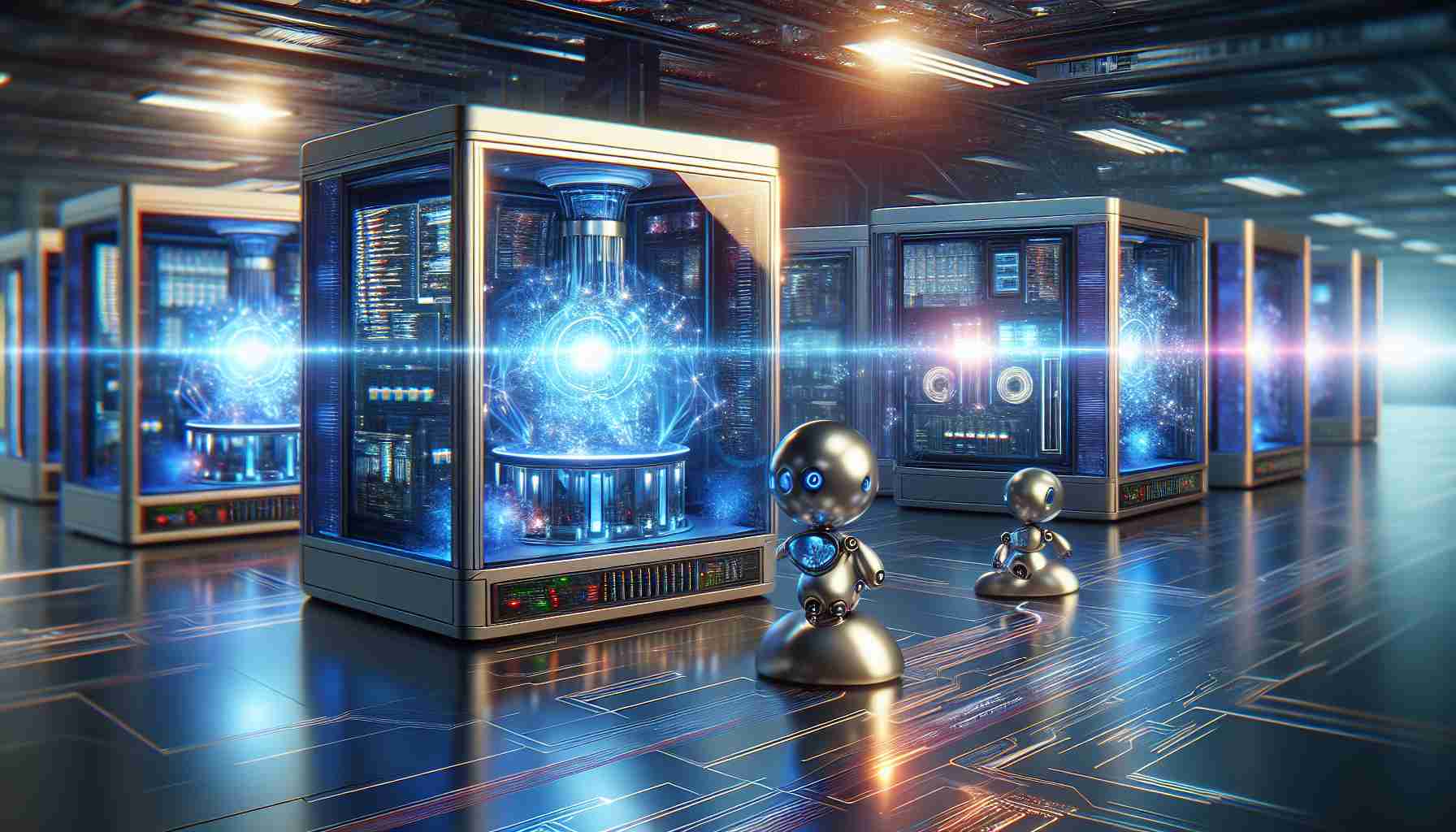AI models are revolutionizing the way we interact with technology, but they come with significant computational requirements. As AI continues to advance, the need for powerful AI PCs becomes increasingly crucial. The launch of AI PCs from Intel and AMD this year marks a significant step in this direction, bringing compact large language models into the spotlight.
With the rise of localized AI, resource-intensive tasks can now be performed on PCs, presenting new possibilities for customers. This development is reminiscent of past software leaps, such as the introduction of Windows 7, which prompted both OEMs and customers to invest in hardware upgrades. AI is poised to have a similar transformative effect on the market.
While current-generation notebooks with integrated neural processing units can handle AI computations, memory limitations become a bottleneck. The 8GB standard memory is simply insufficient to run larger models or multiple smaller ones effectively. To address this, industry experts predict that the minimum spec for AI PCs will include 16GB of RAM and 40 tera-operations per second (TOPS) of NPU inferencing performance.
Nevertheless, GPUs remain integral to PC AI capabilities, particularly for running larger models like Llama 2 and Stable Diffusion. NPUs, on the other hand, excel in accelerating smaller machine learning tasks without straining CPU and GPU resources.
GPU vendors like AMD and Nvidia are also taking notice of the AI trend, boosting their products to meet the growing demand. AMD, for instance, previewed an entry-level GPU with 16GB of GDDR6 memory, specifically designed to support larger AI models. Nvidia, on the other hand, introduced the RTX 4070 TI Super with increased vRAM and improved memory bandwidth to enhance AI response times.
As the AI PC market evolves, the critical mass of AI-capable hardware in customers’ hands will drive software developers to integrate AI algorithms into their applications. This, in turn, will lead to the emergence of new use cases and the continued growth of AI models, demanding even more powerful AI PCs.
In conclusion, the future of computing lies in the hands of AI PCs. As technology advances and AI becomes more prevalent, the need for powerful hardware will continue to rise. The collaboration between hardware manufacturers and software developers will pave the way for innovative applications that leverage the capabilities of AI models. The AI revolution is well underway, and AI PCs will be at the forefront of this transformative era.
FAQ: AI PCs
What are AI PCs?
AI PCs refer to personal computers that are specifically designed and equipped to handle artificial intelligence (AI) computations. These PCs have powerful hardware components and capabilities to handle resource-intensive AI tasks effectively.
Why are AI PCs important?
AI PCs play a crucial role in enabling the use of AI technology in various applications. As AI continues to advance, the computational requirements for running AI models become more significant. AI PCs provide the necessary hardware and processing power to run these models efficiently.
What are some key requirements for AI PCs?
Industry experts predict that AI PCs should have a minimum of 16GB of RAM and 40 tera-operations per second (TOPS) of neural processing unit (NPU) inferencing performance. These specifications ensure that the PCs can effectively handle larger AI models or multiple smaller ones.
How do GPUs and NPUs contribute to AI PCs?
GPUs (graphics processing units) are essential in AI PCs for running larger AI models. On the other hand, NPUs (neural processing units) excel in accelerating smaller machine learning tasks without overburdening the CPU and GPU resources.
How are GPU vendors adapting to the AI trend?
GPU vendors like AMD and Nvidia are recognizing the growing demand for AI capabilities in PCs. They are developing GPUs with increased memory capacity and improved performance specifically designed to support larger AI models and enhance AI response times.
What impact will AI PCs have on software development?
As the number of AI-capable hardware in customers’ hands increases, software developers will be motivated to integrate AI algorithms into their applications. This integration will lead to the creation of new use cases and the continuous growth of AI models, requiring even more powerful AI PCs.
What is the future of AI PCs?
The future of computing lies in the hands of AI PCs. The collaboration between hardware manufacturers and software developers will result in innovative applications that make full use of AI models’ capabilities. The AI revolution is underway, and AI PCs will be at the forefront of this transformative era.
Definitions:
– AI: Artificial Intelligence
– CPU: Central Processing Unit
– GPU: Graphics Processing Unit
– NPU: Neural Processing Unit
– RAM: Random Access Memory
– TOPS: Tera-operations per second
– vRAM: Virtual Random Access Memory
Related Links:
– Intel
– AMD
– Nvidia
The source of the article is from the blog combopop.com.br

